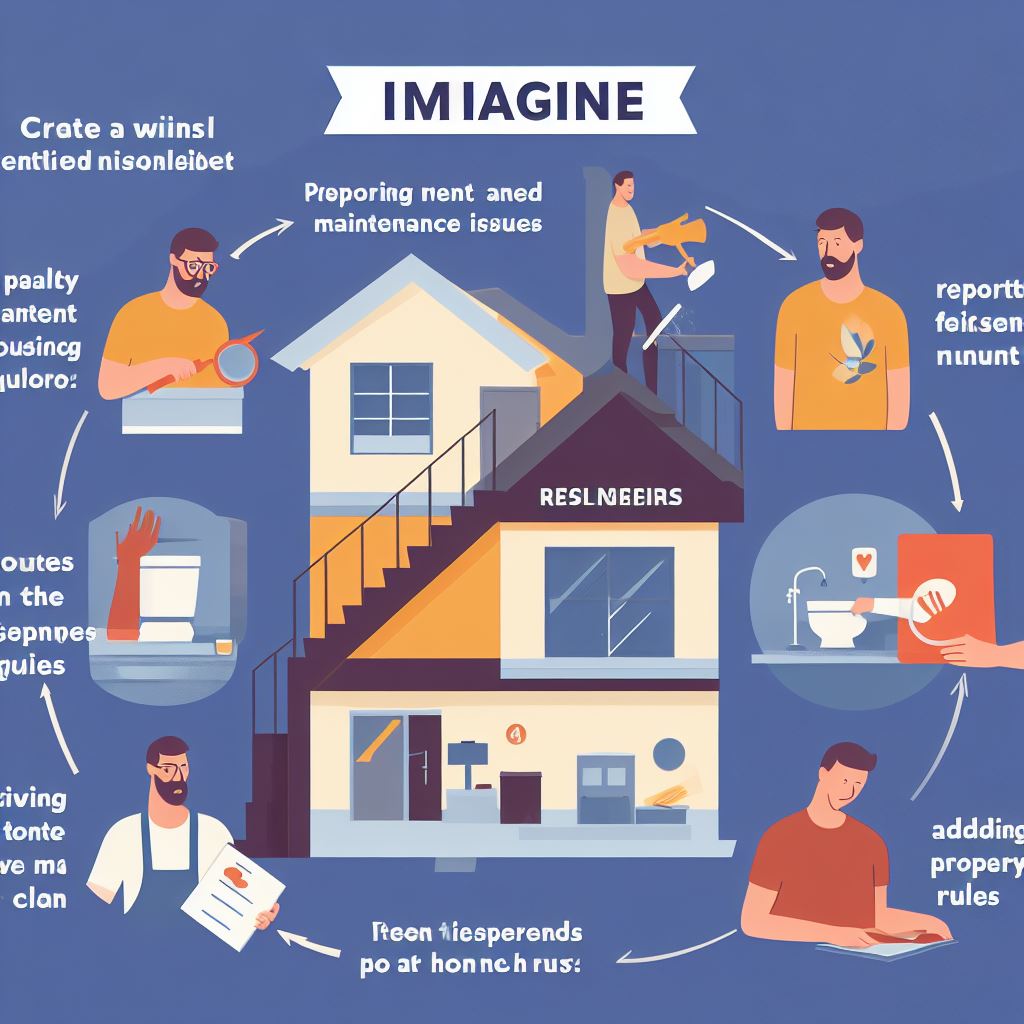Section 8 Housing: A Comprehensive Guide on Tenant Obligations

Are you considering Section 8 housing? Dive into this comprehensive guide on tenant obligations.
Eligibility requirements, rent payment responsibilities, property maintenance, reporting changes in income or household composition, and compliance with program rules and regulations – all covered in detail.
With this analytical and informative resource, you’ll gain a clear understanding of what it takes to be a responsible Section 8 tenant.
Let’s explore your obligations and ensure a smooth experience in your new home.
Key Takeaways
- Eligibility requirements for Section 8 housing include meeting income thresholds, having U.S. citizenship or eligible immigration status, proving identity and citizenship/immigration status, and maintaining a good rental history.
- Rent payment responsibilities include paying rent on time and in full, with rent typically calculated as 30% of monthly adjusted income. It is important to inform the housing authority promptly of any changes in income and establish a payment method with them to avoid penalties or termination from the program.
- Property maintenance and repairs are the tenant’s responsibility, including regular cleaning and upkeep to prevent health hazards, reporting maintenance issues promptly, cooperating with maintenance personnel, and following preventive measures to maintain the property’s condition.
- Reporting changes in income or household composition is crucial to ensure accurate benefits calculation and compliance with program rules. Failure to report changes can lead to loss of benefits or eviction, and changes in household composition can affect eligibility and assistance amounts. Compliance with program rules and regulations, such as timely reporting, familiarizing oneself with program requirements, maintaining the property in good condition, and attending mandatory meetings or trainings, is essential to remain eligible for affordable housing.
Eligibility Requirements
To determine if you meet the eligibility requirements for Section 8 housing, you must fulfill specific criteria set by the government. These criteria are designed to ensure that the program is available to those who truly need assistance with their housing costs.
The first requirement is that your household income must be below a certain threshold, which is determined by the Department of Housing and Urban Development (HUD) based on the area you live in and the size of your household.
Additionally, you must be a U.S. citizen or have eligible immigration status. You must also provide documentation to prove your identity and citizenship or immigration status.
Another important eligibility factor is your rental history. You must have a good record of paying your rent on time and not have been evicted from a Section 8 property in the past.
Finally, you must pass a background check, which includes looking at your criminal history.
If you meet these eligibility requirements, you may be eligible to receive Section 8 housing assistance.
Rent Payment Responsibilities
You are responsible for paying your rent on time and in full. As a tenant in Section 8 housing, it’s crucial to understand your rent payment responsibilities to maintain your eligibility for the program. The Department of Housing and Urban Development (HUD) sets guidelines for rent calculation, which is typically 30% of your monthly adjusted income. It’s essential to inform your housing authority promptly if there are any changes in your income to ensure accurate rent calculations.
To pay your rent, you’ll need to establish a payment method with your housing authority. This may include online payments, direct deposit, or in-person options. It’s crucial to determine the preferred payment method and adhere to the specified schedule for rent payment. Failure to pay your rent on time and in full can result in penalties, such as late fees, eviction, or even termination from the Section 8 program.
If you encounter difficulties in paying your rent, it’s essential to communicate with your housing authority promptly. They may be able to provide assistance or connect you with resources to help you fulfill your rent payment obligations. Remember, timely and full rent payment isn’t only a requirement but also an essential part of maintaining a stable living situation and preserving your eligibility for Section 8 housing.
Property Maintenance and Repairs
Ensuring proper property maintenance and prompt repairs is crucial for tenants in Section 8 housing to maintain a safe and habitable living environment. As a tenant, it’s your responsibility to adhere to the following guidelines:
- Regular cleaning and upkeep: Keeping your rental unit clean and tidy not only creates a pleasant living space but also helps prevent the growth of mold, pests, and other health hazards.
- Reporting maintenance issues promptly: If you notice any repairs that need to be addressed, such as leaking pipes or faulty electrical outlets, it’s important to inform your landlord or property manager immediately. Prompt reporting ensures timely repairs and prevents further damage.
- Cooperating with maintenance personnel: When maintenance personnel are scheduled to visit your unit for repairs or inspections, it’s essential to cooperate and provide them with access. Be courteous and respectful, as they’re there to maintain the property for your benefit.
- Following preventive measures: Taking preventive measures, such as changing air filters regularly or cleaning gutters, helps to prevent potential issues and maintain the overall condition of the property.
By fulfilling these obligations, you contribute to the overall well-being and longevity of the Section 8 housing community.
Reporting Changes in Income or Household Composition
It is important for you, as a tenant in Section 8 housing, to promptly report any changes in income or household composition. This is crucial because your eligibility for the program is determined based on your income and the size of your household.
If there are any changes in your income, such as a raise or a loss of employment, it’s essential that you inform your housing authority immediately. Failure to report these changes can lead to serious consequences, such as a loss of benefits or even eviction.
In addition to changes in income, you must also report any changes in your household composition. This includes adding or removing family members, getting married or divorced, or having children. These changes can affect your eligibility and the amount of assistance you receive.
By reporting these changes promptly, you can ensure that your benefits are accurately calculated and that you’re in compliance with program rules and regulations.
By reporting changes in income or household composition, you’re demonstrating your commitment to complying with the rules and regulations of the Section 8 housing program. This not only protects your rights as a tenant, but also helps to maintain the integrity of the program for all participants.
Compliance With Program Rules and Regulations
To stay in compliance with the Section 8 housing program, promptly report any changes in income or household composition to ensure your eligibility and accurately calculate your benefits. Compliance with program rules and regulations is crucial to maintaining your Section 8 housing assistance. By adhering to these rules, you not only demonstrate your commitment to the program but also ensure the continued availability of affordable housing for those in need.
Here are some important aspects of compliance that you should be aware of:
- Timely reporting: It’s essential to report any changes in your income or household composition as soon as they occur. Failing to do so may result in a loss of benefits or even termination from the program. Prompt reporting allows for an accurate assessment of your eligibility and allows the program administrators to adjust your benefits accordingly.
- Meeting program requirements: Familiarize yourself with the specific program rules and regulations that apply to your Section 8 housing assistance. This includes understanding limitations on income, occupancy, and other eligibility criteria. By complying with these requirements, you ensure that you remain eligible for the program and receive the appropriate level of assistance.
- Maintaining the property: As a Section 8 tenant, you’re responsible for maintaining the property in good condition. This includes keeping the unit clean and free from damage. Failure to meet these obligations may result in penalties or even eviction from the program.
- Attending required meetings: Stay informed by attending any mandatory meetings or trainings organized by the program administrators. These sessions provide valuable information on program updates, rights, and responsibilities. By actively participating, you demonstrate your commitment to compliance and your willingness to stay informed.
Frequently Asked Questions
Can Section 8 Housing Assistance Be Used for Purchasing a Home?
Yes, section 8 housing assistance can be used for purchasing a home. It provides eligible individuals with vouchers that can be used towards monthly rental payments, including the option to use them for homeownership expenses.
How Can Tenants Address Disputes With Their Landlords Regarding Property Maintenance and Repairs in Section 8 Housing?
To address disputes with your landlord about property maintenance and repairs in Section 8 housing, communicate your concerns in writing, keep records of the issues, and contact your local Public Housing Agency for guidance and assistance.
What Are the Consequences for Not Reporting Changes in Income or Household Composition to the Section 8 Program?
If you don’t report changes in income or household composition to the Section 8 program, consequences may include termination of your assistance or being required to pay back any overpayments. It’s important to stay in compliance.
Are Tenants Allowed to Sublet Their Section 8 Housing Units?
Yes, you are allowed to sublet your Section 8 housing unit. However, you must first obtain written permission from your housing authority. Failure to do so may result in serious consequences.
What Steps Can Tenants Take if Their Landlord Is Not Complying With Program Rules and Regulations for Section 8 Housing?
If your landlord is not complying with program rules and regulations for Section 8 housing, you have options. Start by talking to your landlord and documenting any issues. If that doesn’t work, contact your local housing authority for assistance.



